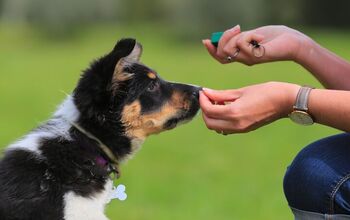Is an Off-Leash Park Right for My Dog?

Off-leash dog parks offer a tempting playground for our furry friends to socialize and burn energy, especially if they live in a single dog home. However, not all dogs are suited for this environment.
From reactive dogs triggered by the presence of dogs they’ve never met before to dogs that simply lack the etiquette to socialize with others respectfully, an off-leash dog park can quickly spiral into a dangerous and even life-threatening environment if you’re not fully prepared.
In this article, we’ll outline the key factors to consider when deciding if an off-leash dog park is suitable for your dog, including their temperament, training, and your own comfort level. Let’s explore the pros and cons of off-leash parks to help you make an informed decision.
What Types of Dog Parks Are Available?
When people discuss dog parks, they often instantly picture a fenced open field. However, there are many different types of dog parks and exercise areas your pup may enjoy.
A basic dog park is exactly as I just described. They are often found in urban areas where dogs may lack yards and other spaces to run around. Usually, these open spaces contain picnic tables for the dog parents who are also visiting to relax. Some dog parks, recognizing the added risks smaller dogs face when their larger counterparts run around the space, have created two separate penned spaces – one for small dogs and one for large dogs.
Doggy playgrounds are dog parks that incorporate agility and other fun play elements for dogs to explore and experience. Some examples include teeter-totters, tunnels, playhouses, platforms, and more. These dog parks may also offer a selection of dog toys to enjoy during your visit.
Finally, dog beaches perfectly combine an open dog park space and a beach/swimming spot. These are sometimes fenced off, but not always. Dog beaches may be off-leash, on-leash, or a combination of the two with designated sides depending on your dog’s (and your) comfort level. Most dog beaches aren’t fenced, but some will offer this added security feature, with fences leading up to and even extending slightly into the water.
What are the Pros of Dog Parks?
With so many dog parents getting excited each time a new dog park is announced, it’s safe to assume that these public pet-friendly spaces offer some benefits for us and our pups. Here are the pros you can look forward to when visiting your local off-leash dog park or exercise area:
Socialization Opportunity
One of the most popular reasons dog parents cite for using dog parks is the ability to socialize their dogs with other dogs and people. When walking our dogs down the street or through the local municipal park, we don’t often know which dogs or people are “dog-friendly,” leading most dog parents to steer clear of anyone else who may use the space. However, when you enter a dog park, the expectation is that everyone within that set boundary is open to interacting with one another.
Chance to Meet New Dog Parents
Our dogs aren’t the only ones who struggle at times to meet dog-friendly friends. As dog parents, we all know the challenge of explaining to our non-dog-parent friends why we would prefer to include our dogs in everything we do. If you don’t share your heart and home with a dog, you don’t understand just how special that bond can be.
When we walk into a dog park, we know that any people we interact with during our visit are there for the same purpose—to give their dogs the best possible experience. This allows us to meet and connect with other dog parents, which can lead to doggy play dates and other get-togethers.
Enrichment and Exercise
Our dogs need exercise and mental stimulation to lead happy, healthy lives. While this can be provided at home with the help of snuffle mats, interactive dog toys, puzzle feeders, and other activities, there is something to be said about the joy dogs feel when running with their canine friends. If you have a high-energy dog, this is a good opportunity to encourage them to run, play, and wear themselves out without requiring you to run alongside them.
Training Opportunity
Are you looking for opportunities to train your dog to interact safely and respectfully with other pups? This can be challenging if you have only one dog at home. However, when you walk into a dog park, your dog will only encounter other dog-friendly dogs (one assumes, more on that later). This is a great time to show them how to interact appropriately without fearing that coming on too strong could trigger a dog fight with a dog-selective or reactive pup.
This is also an excellent opportunity to train your dog to interact with people appropriately. People who walk into a dog park are usually dog lovers, so you don’t have to worry about your dog walking up to someone who is afraid of dogs. While this doesn’t negate the need to keep your dog from jumping all over someone without permission, it is a good spot to address your concerns and train your dog on interacting respectfully.
Introduction to New experiences
Dog parks also offer a safe space for your dog to discover and interact with new experiences. Dog parents may arrive with items that may otherwise trigger your dog – like bicycles, wagons, strollers, children, or people of different ages and ethnicities. Allowing your dog to experience all these people and items in a safe space is a great way to set them up for success as you head out into other areas of the world.
For example, if your dog learns that a stroller isn’t “scary” when seeing one regularly coming into their favorite dog park, they are less likely to react to one when walking down the street.
Safe from Many Outside Risks
We all want to keep our dogs safe when they are playing. Unfortunately, this can be challenging if we don’t have the benefit of a fenced yard for them to run and play. When your dog is playing in a fenced dog park, you can rest assured that you don’t have to worry about outside dangers like your dog being stuck by a car. This alone is reason enough for many dog owners to familiarize themselves with the dog parks at home and in the destinations they are traveling to.
What are the Cons of Dog Parks?
Of course, like any decision we make as go parents, there are both pros AND cons to consider. Here are a few of the reasons why you may want to be cautious or avoid dog parks (or select dog parks) to keep your furry friend safe:
Aggressive or Untrained Dogs
The assumption is that dogs brought to a dog park are dog-friendly. Unfortunately, not all dog parents are a) aware of their dog’s thoughts/feelings towards other dogs and b) proactive in keeping their dog and other dogs safe. There are times when you may encounter an unsocialized, reactive, or aggressive dog. If you, as a dog parent, don’t realize this quickly and get your dog out of the situation, it could lead to a potentially serious fight.
Interacting with Intact Dogs
A concern often overlooked in dog-related social settings is the impact of intact dogs. While I’m not trying to claim that there is a “right” time to have your dog fixed (it varies from breed to breed, from my research), I will say that bringing intact dogs into public spaces can have severe consequences. From accidental pregnancies to fights for dominance, the presence of intact dogs could create an unsafe environment for your furry friend.
Exposure to Parasites and Disease
With a growing number of veterinarians and dog experts worrying about contagious diseases and ailments like parvo, kennel cough, distemper, and leptospirosis, public spaces like dog parks create a breeding ground for disease and illness. If your dog is vaccinated against the common risks, they will likely be safe, but is that a risk you are willing to take?
In addition to these many potentially life-threatening ailments, parasites like fleas and hookworms may be present in the space. Is the risk of exposure worth it?
Picking Up Bad Habits
Sure, dog parks are a great place to train your dog, introducing them to other well-mannered dogs that can help them learn how to behave appropriately. But what about all the other dogs who haven’t learned these skills? There is a good chance that during your visits, your dog will encounter other pups that haven’t learned how to interact with others properly. This can lead to them picking up bad habits that they didn’t previously exhibit – like running up to dogs uninvited, jumping up, playing too rough, humping, and more.
While we wish there were a way to guarantee that the only dogs your pup will meet are those that will help them learn and grow, it’s just not realistic.
Liability Concerns
As previously mentioned, some risks may set your dog up for failure. From unsocialized or nervous pups to those who are dog-aggressive, you may find yourself (and your dog) in a dangerous or concerning situation. Even if your dog is responding to an outside threat, there is always the chance they will be found legally liable for any damage they cause.
This could ultimately mean restrictions, like your dog not being allowed to visit the dog park again, legal requirements like wearing a muzzle when in public, or, in the most severe situations, your dog may be taken away or put to sleep.
Are Dog Parks Safe?
With all these factors, both pros and cons, one is left with the question – are dog parks safe? While it leaves us all in the unwanted “grey zone” of not knowing, the answer is “maybe.” If you live in an area where you have had the opportunity to meet and get to know local dog owners, you may be able to safely assess the risk before stepping into the dog park, allowing your dog to only play with dogs you know are safe. However, this isn't always possible during travel, in larger cities, or when moving to a new area.
I’m not anti-dog parks for all dog owners and situations. This really does vary from dog to dog and location to location. For me personally, the risks outweigh the benefits, and I prefer to arrange private dog play dates and rent private dog park spaces like those available on Sniffspot.
Final Thoughts: Is a Dog Park Right for Your Pup?
Ultimately, deciding whether an off-leash park is suitable for your dog will depend on several factors. Consider your dog’s temperament, level of training/socialization, and comfort around other dogs. If you’re unsure, start slow. Visit the dog park during off-peak hours and observe the interactions of other dogs using the space before allowing your dog to run loose.
Most importantly, remember that your dog's safety is paramount. If you are uncomfortable with the environment or the other dogs present, don’t hesitate to leave.
It is essential to choose the best option to suit our dog’s needs. If dog parks can’t provide the needed interaction with others, consider planning private playdates or looking into local doggy daycares and training classes. There is an option for everyone!

Britt Kascjak is a proud pet mom, sharing her heart (and her home) with her “pack” which includes her husband John, their 2 dogs – Lucifer and Willow – and their 2 cats – Pippen and Jinx. She has been active in the animal rescue community for over 15 years, volunteering, fostering and advocating for organizations across Canada and the US. In her free time, she enjoys traveling around the country camping, hiking, and canoeing with her pets.
More by Britt
























